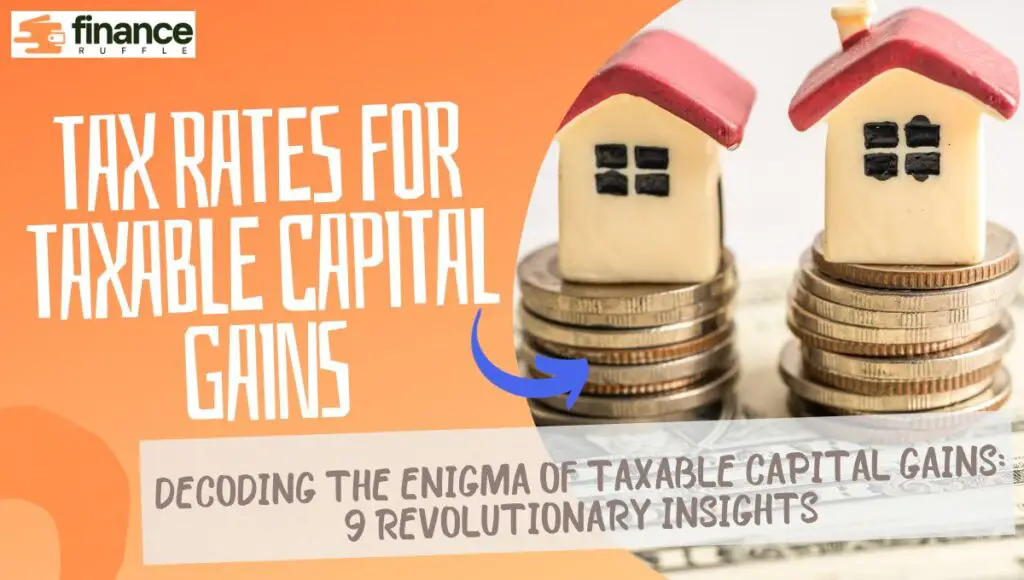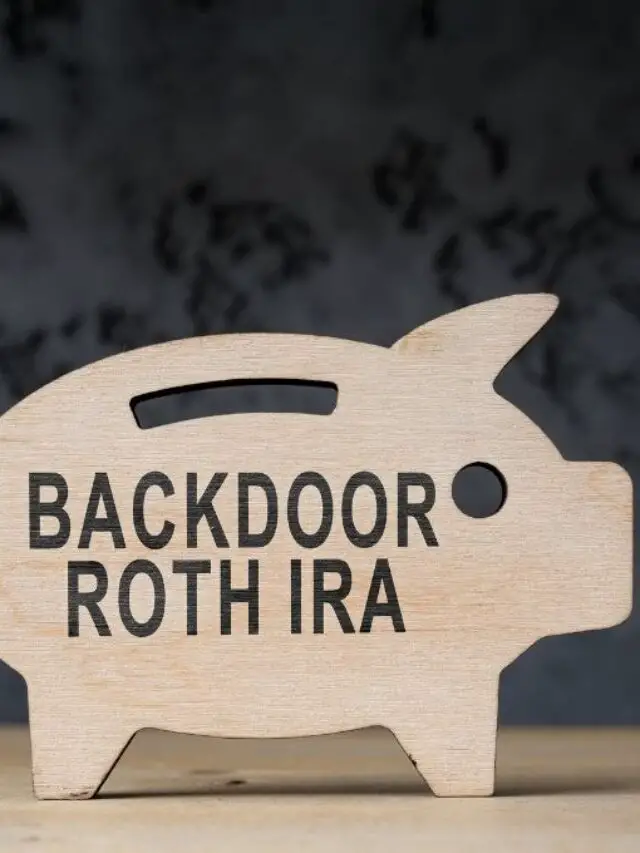Welcome to the intricate world of taxable capital gains! If you’re like most people, the term might sound like financial jargon. But here’s the deal: understanding such gains is a game-changer for anyone looking to make smart investment decisions. In this comprehensive guide, we’ll unpack everything you need to know about these capital gains, from the basics to advanced strategies for minimizing your tax liability.
Table of Contents
Taxable Capital Gains 101
So, what is taxable capital gain? In layman’s terms, they’re the profits you make from selling an asset, like stocks or property, that you have to report to the IRS. Unlike non-taxable capital gain, which are often exempt due to specific conditions like inheritance, such gains are subject to tax laws.
Comparing Taxable and Non-Taxable Capital Gains
| Aspect | Taxable Capital Gains | Non-Taxable Capital Gains |
| Tax Obligation | Yes | No |
| Common Assets | Stocks, Real Estate | Inherited Assets |
| Reporting Complexity | Higher | Lower |
Who Is Affected by Taxable Capital Gain?
You might think taxable capital gain is only for Wall Street bigwigs. Think again. Whether you’re a casual investor in the stock market, a homeowner, or even someone who sold a valuable collectible, you could be affected by taxable capital gains. Essentially, if you’ve made a profit from selling an asset, it’s time to consider the tax implications.
Types of Taxable Capital Gains
Taxable capital gains aren’t a one-size-fits-all category. They can vary based on the asset involved or the nature of the transaction.
Asset-Based Types
- Stocks and Bonds: These are the most common types of assets that result in taxable capital gain.
- Real Estate: Selling a property that isn’t your primary residence? You’re looking at taxable capital gain.
- Collectibles: Think art, coins, or even vintage cars. These can all result in taxable capital gain.
Transaction-Based Types
- Short-Term: These are gains from assets held for less than a year.
- Long-Term: Gains from assets held for more than a year fall into this category.
Understanding these types can help you navigate the complex landscape of these gains more effectively.
Calculating Taxable Capital Gain
Calculating taxable capital gain might seem daunting, but it’s simpler than you think. The formula is straightforward:
Profit from Sale – Cost of Asset = Taxable Capital Gain
Sample Calculation
| Purchase Price | Sale Price | Taxable Capital Gain |
| $200 | $300 | $100 |
Apply the appropriate tax rate to this gain, and voila, you’ve got your taxable capital gains figured out.

Tax Rates for Taxable Capital Gains
The tax rates for such type of gains can vary based on several factors, including how long you’ve held the asset and your overall income. Generally, short-term gains are taxed at a higher rate than long-term gains, so holding onto assets for more than a year can offer some tax benefits.
How to Report Taxable Capital Gain
When tax season rolls around, you can’t just sweep your gains under the rug. You’ll need to report them, usually by using IRS Form 1040 and Schedule D. And remember, deadlines are not suggestions; missing them could result in penalties.
Reporting Process
- Gather all transaction records.
- Complete Schedule D to summarize your gains and losses.
- Transfer the total to Form 1040.
- File by the tax deadline, typically April 15.
Strategies to Minimize Taxable Capital Gain
Nobody enjoys parting with their hard-earned money, especially when it comes to taxes. But the good news is there are strategies to minimize your taxable capital gain.
Strategies
- Tax-Loss Harvesting: Offset gains by selling losing investments.
- Timing: Consider the length of time you hold an asset; holding for more than a year often results in lower tax rates.
- Gift Assets: Gifting assets to family members in lower tax brackets can also be a smart move.
Taxable Capital Gain and State Taxes
Don’t forget, Uncle Sam isn’t the only one interested in your taxable capital gains. Many states have their own capital gains taxes, and these can stack on top of federal taxes. However, some states, like Florida and Texas, don’t have a state capital gains tax, offering a bit of relief.
Taxable Capital Gain: Common Misconceptions
Let’s bust some myths. First off, no, you can’t avoid taxable capital gains by simply not reporting them. And reinvesting your gains doesn’t make them non-taxable. Understanding the facts can save you from making costly mistakes down the line.
Conclusion
We’ve covered a lot of ground, from the basics to strategies for minimizing your taxable capital gain. The bottom line? Knowledge is power. The more you understand about taxable capital gains, the better equipped you’ll be to make savvy financial decisions.
Additional Resources
For those who want to dive even deeper, here are some resources to explore:
- Books: “The Taxable Capital Gains Handbook”
- Websites: IRS.gov, Investopedia.com
- Tools: Tax calculators, investment tracking apps
Frequently Asked Questions (FAQs)
- What is the “wash sale rule” in relation to taxable capital gain?
The wash sale rule prevents you from claiming a capital loss on the sale of an asset if you buy a “substantially identical” asset within 30 days before or after the sale.
- How do taxable capital gain affect my adjusted gross income (AGI)?
Taxable capital gain is included in your AGI, which can impact various tax credits and deductions you may be eligible for.
- Are dividends considered taxable capital gain?
Dividends are generally not considered taxable capital gains. They are usually taxed as ordinary income, although “qualified dividends” may be taxed at a lower rate.
- Can I offset taxable capital gains with business losses?
Yes, business losses can be used to offset taxable capital gain, but there are specific rules and limitations you should consult a tax advisor about.
- Do I have to pay estimated taxes on my taxable capital gains?
If you have significant taxable capital gain, you may need to make estimated tax payments to avoid penalties.
- What are the tax implications of gifting assets with taxable capital gains?
When you gift an asset, the recipient inherits your cost basis, potentially affecting the taxable capital gains when the asset is later sold.
- How do life events like marriage or divorce affect taxable capital gains?
Life events can change your tax bracket, which in turn can affect the rate at which your taxable capital gain are taxed.
- Are there any age-related exemptions for taxable capital gains?
There are no age-specific exemptions, but retirees may have a lower income, potentially qualifying them for lower capital gains tax rates.
- Can I use retirement funds to offset taxable capital gains?
Generally, transactions within retirement accounts like 401(k)s and IRAs are not subject to capital gains tax, so they can’t be used to offset taxable capital gain.
- What happens if I use the asset as part of my business?
If the asset is used in a business, it may be subject to depreciation recapture upon sale, which could affect the amount of taxable capital gains.

Prashant Chauhan
Author @ Finance RuffleMeet Prashant Pratap Chauhan, the savvy founder behind Finance Ruffle, a hub for sharp financial insights and expert analysis in the realm of finance blogging.










Pingback: Decode The Mysteries Of Short-Term Capital Gains Tax: 9 Powerful Insights | Finance Ruffle